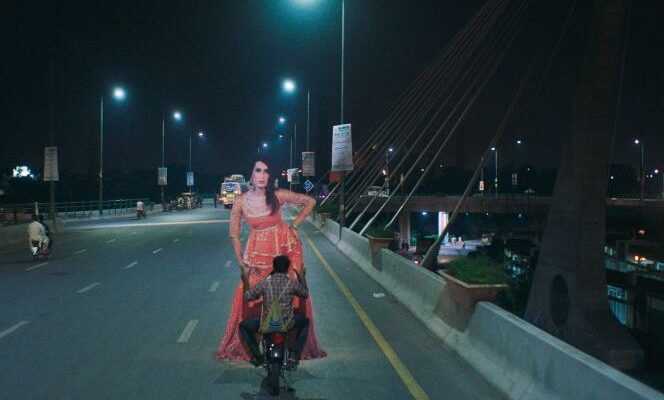IN SOME PERSPECTIVE
One of the most beautiful films we have seen this year, in the Un certain regard came to us from Pakistan selection. A first, for this country which had never competed in Cannes before and finds itself today in the running for the Camera d’or, with Joyland, first feature film by Saim Sadiq, whose mastery and elegance both gripped and enchanted us. And this, on a subject freed from all its perils. Namely the question of gender, sexual identity – or even sexuality in general. A vast field that the young 31-year-old Pakistani filmmaker narrows between the highly symbolic walls of a house and the family it shelters. Which imposes itself, here, as the reflection of an entire society; and, more broadly still, of a country which, like so many others, remains deeply rooted in the patriarchal system.
In Lahore, in the family home where the sick old father, his two sons Saleem (Sohail Sameer) and Haider (Ali Junejo), as well as their respective wives Nucci (Sarwat Gilani) and Mumtaz (Rasti Farooq) live together, this system governs everyday life. He keeps everyone in the place and in the tasks assigned to them. Well almost. Because, as we have noticed, Haider, clumsy and reluctant to repair the home, does not quite meet the codes of virility expected of him. Worse, he has no job or child, unlike his brother who ticks all the boxes. The patriarch worries. We don’t mess with the rules.
Ask about your desires
This is how, yielding to the pressure, Haider ends up accepting a place as a dancer in a cabaret. To the family, he will say that he was taken on as manager. The lie will pass (at least for a time). Conversely, Haider cannot hide his lack of flexibility and talent for choreographic art. Fortunately, support will be offered to him in the person of Biba (Alina Khan), a transsexual artist with a strong personality who is trying to break into the profession and make a name for herself. Between them, a friendship is established, whose amorous shift takes place with subtlety and infinite grace. Qualities which, when applied as is the case here, to the script, the staging and the acting, become a sublime virtue.
This elegance – which, in joyland is also expressed through humor – spares us the themed film, as if, basically, this page had already been turned. At least for the cinema. Because, in the story, the love uniting Biba and Haider will create an implosion within the family that will reshuffle the cards, leading everyone to question their own desires. From this collapse, we feel nothing coming, hypnotized by the magic of a film which, to the brilliance of noise and light, prefers the rustling and twinkling of the nights. Where we laugh and love each other, lurking in the shadows. Even if it means upsetting the order of the world.
You have 4.67% of this article left to read. The following is for subscribers only.
